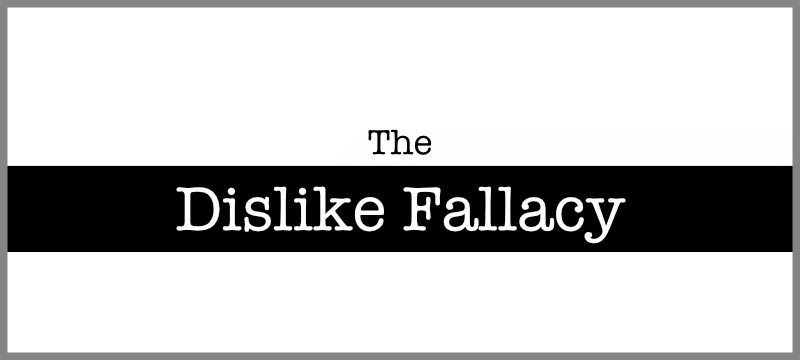I came up with the dislike fallacy because atheists always have a fallacy they use to refute things.
There is an argument by atheists that goes like this. The God of the Bible is a capricious, malevolent, misogynistic, genocidal, and slavery endorsing God. Therefore He cannot be a God. It is a way to say that God is not real because the Bible describes an evil God.
This argument is based on a fallacy because it uses the logic if I do not like something, it cannot exist. However, if we apply this logic to anything else, we can quickly see how it is not valid. There are many things we don’t like in life. There are people who we believe are very evil, but does that mean they do not exist? I could bring a near endless list of things that people detest but still exist.
The most that one could claim of God being evil is God is evil. That is a person’s opinion and which creates a problem. On what basis does one determine what is wrong? What transcendent law is used to resolve this? Could it be that one is using the tape measure to judge itself? Many cultures do things that other cultures find appalling. Who is to say which culture is right? If we cannot agree on what is good, how can one claim God is evil?
Furthermore, if we say God is evil, we make ourselves a god. We somehow believe we have reached a more high ground to judge. One should be embarrassed by such claims. There are around seven billion people in the world doing all kinds of things, good and bad. We have to have a judge and lawyers to settle a case between two people. How can one claim they know what is best when it involves a world of people and cultures?
To conclude, stating a case for something or someone as harmful does not make them nonexistent. Also, determining what others do is wrong would mean one believes they are superior to others and makes themselves a god. Last is that should humble people from judging based on their standards, even judging God Himself.

